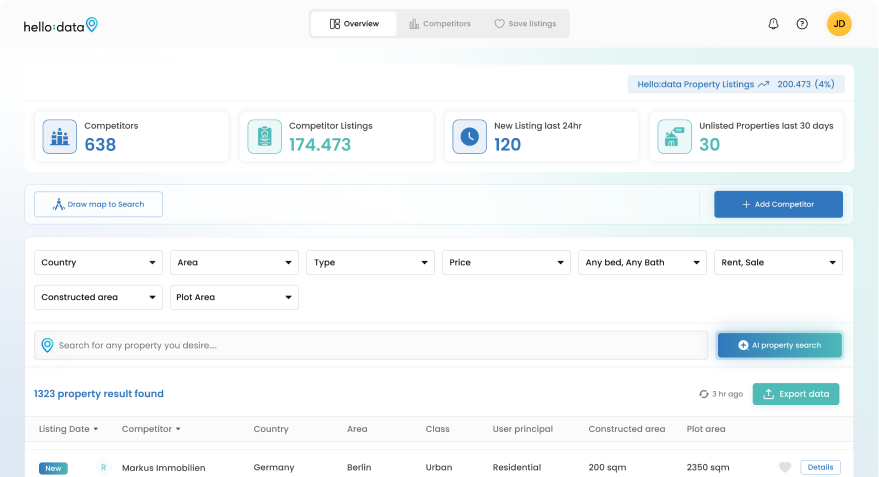Introduction
What is Hub and Spoke Collusion and How Does it Apply to Real Estate?
Hub and Spoke Collusion refers to a scenario where companies (the “spokes”) coordinate their pricing strategies through a central entity (the “hub”). This form of collusion can manipulate market dynamics, leading to inflated prices and stifled competition. Understanding this practice is crucial for all stakeholders in real estate, from agents to consumers.
The importance of recognizing collusion in real estate lies in its potential impact on market integrity. With increasing reliance on technology, especially through Proptech and Artificial Intelligence, the risk of collusive behavior escalates. Knowledge of these practices empowers industry participants to advocate for transparency and fair competition.
This article delves into:
- The fundamental concepts behind Hub and Spoke Collusion.
- Legal frameworks governing collusion in real estate.
- The role of antitrust authorities.
- Technological influences on market practices.
- Innovative solutions like Hello:Here that promote transparency.
By exploring these aspects, we aim to provide a comprehensive understanding of how Hub and Spoke Collusion affects the real estate landscape.
Understanding Market Trends Through Sentiment Analysis
One way to combat the effects of collusion and gain insights into market dynamics is through sentiment analysis. This process involves understanding opinions and emotions expressed in text, providing valuable insights by analyzing various sources such as social media, news articles, and more.
Leveraging Multifamily Rent Surveys for Investment Boost
Another innovative approach is utilizing a multifamily rent survey which can significantly enhance investment strategies by providing crucial insights into rental rates.
Breakeven Occupancy: A Critical Metric for Investors
Understanding breakeven occupancy is essential for property owners and investors. This metric represents the minimum occupancy level required for a property to cover its operating expenses and debt service without incurring losses.
Simplifying Real Estate Payments with ClickPay
In terms of financial management within real estate, the introduction of platforms like ClickPay has revolutionized the process. This cloud-based solution simplifies the complicated process of collecting rent and managing finances.
The Importance of Economic Base in Real Estate Investments
Lastly, understanding the economic base is crucial for making informed real estate investments. The economic base refers to the economic foundation of a region, which drives its financial stability and growth.
Understanding Hub and Spoke Collusion
Hub and Spoke Collusion refers to a market structure where a central entity (the hub) facilitates collusion among several other entities (the spokes). This model allows these entities to coordinate their actions without direct communication, often leading to higher prices and reduced competition. In real estate, this can manifest when property managers or landlords indirectly agree to set similar pricing strategies, resulting in an artificially inflated rental market.
Tacit vs. Explicit Collusion
Understanding the difference between tacit collusion and explicit collusion is critical:
- Tacit Collusion: Occurs when companies implicitly coordinate their behavior without formal agreements. This can happen in markets where firms observe each other’s pricing and adjust accordingly.
- Explicit Collusion: Involves clear agreements or communications between parties to fix prices or limit output. This type of collusion is illegal in many jurisdictions.
Both forms undermine competitive practices but tacit collusion is often more challenging to prove in court.
The Role of Pricing Algorithms
Pricing algorithms significantly enhance the potential for collusion through:
- Algorithmic Cartels: Automated systems used by multiple firms can result in coordinated pricing strategies without direct interactions. These algorithms learn from market data and competitor actions, leading to synchronized price adjustments.
- Dynamic Pricing Models: Many real estate platforms use sophisticated algorithms that analyze vast amounts of data. When firms employ similar technologies, they may inadvertently align their pricing structures.
Properly designed algorithms can benefit consumers by providing fair prices. However, when misused, they pose risks leading to anti-competitive practices. Understanding these dynamics empowers stakeholders to navigate the complex landscape of real estate transactions with greater awareness.
For instance, in the context of Airbnb Plus vs traditional rentals, we see how dynamic pricing models can affect rental prices. Similarly, in the multifamily housing sector, understanding these collusive practices becomes crucial for stakeholders involved in such transactions.
Legal Framework Surrounding Collusion in Real Estate
Understanding the legal framework surrounding collusion is crucial for navigating the complexities of the real estate market. Two primary sets of laws govern this area: U.S. Competition Laws and EU Competition Law.
U.S. Competition Laws
- The Sherman Act serves as a cornerstone of U.S. antitrust law, prohibiting contracts, combinations, or conspiracies that restrain trade.
- The U.S. Department of Justice (DOJ) actively enforces these laws, investigating potential collusive behaviors that threaten market integrity.
- Key legal cases illustrate the application of these laws. For instance, the RealPage lawsuits have drawn significant attention, highlighting how technology platforms can facilitate Hub and Spoke Collusion among real estate agents by enabling coordinated pricing strategies without explicit agreements.
EU Competition Law
- In Europe, competition is regulated under various treaties and regulations, focusing on preventing anti-competitive arrangements.
- The European Commission plays a vital role in enforcing these laws. It investigates companies suspected of engaging in collusive practices that distort competition within the Single Market.
- The implications are significant; violations can lead to hefty fines and damage reputations, creating a ripple effect throughout the real estate sector.
Implications for Real Estate Markets
- Understanding these laws is essential for real estate professionals to avoid potential legal pitfalls associated with collusion.
- Companies must implement robust compliance programs to ensure adherence to competition laws while also fostering fair competition and transparency within their operations.
The landscape of real estate is evolving rapidly due to technology’s influence; thus, awareness of legal obligations becomes paramount for sustainable growth and innovation in this sector.
The Role of Antitrust Authorities in Monitoring Real Estate Markets
Antitrust authorities play a critical role in ensuring fair competition within real estate markets. Their functions include:
1. Monitoring Market Practices
Regulatory bodies such as the UK Competition and Markets Authority (CMA) actively observe market behaviors, assessing whether companies engage in anti-competitive practices, including collusion.
2. Investigating Collusive Behaviors
Authorities initiate investigations into suspected collusion, gathering evidence to determine if companies are engaging in Hub and Spoke Collusion. This involves analyzing pricing strategies and communication patterns among competitors.
Actions taken by these authorities against collusive behaviors can have significant implications for the real estate sector:
1. Enforcement of Competition Laws
Agencies enforce laws that prohibit collusion, ensuring that businesses adhere to regulations designed to promote competitive practices.
2. Imposing Penalties
If violations are found, authorities can impose substantial fines or sanctions on companies involved in collusive arrangements. These penalties act as a deterrent against future anti-competitive behavior.
The vigilance of antitrust authorities is essential for maintaining integrity in real estate markets. Understanding their role helps stakeholders recognize the importance of compliance in an era where technological advancements may inadvertently facilitate collusion.
For instance, Artificial Intelligence in Real Estate is revolutionizing the property market, transforming every aspect of the buying, selling, and management process. Through the analysis of large volumes of data, AI can inadvertently assist in identifying patterns that may lead to anti-competitive practices if not monitored properly.
Moreover, changes brought about by accounting standards like IFRS 16 significantly impact leasing practices within the real estate sector. This transformation necessitates rigorous oversight from antitrust authorities to ensure compliance with competition laws.
Additionally, understanding liquidity in real estate is crucial for stakeholders as it refers to how quickly and easily a property can be bought or sold without significantly impacting its price. High liquidity indicates a fast-moving market which could potentially lead to increased instances of anti-competitive behavior if not regulated effectively.
Lastly, having access to precise and actionable data through tools like SFR analytics is crucial for making informed investment decisions. However, these tools must be used responsibly under the watchful eye of antitrust authorities to prevent misuse that could harm market competition.
The Impact of Technology on Real Estate Collusion
Technology has dramatically transformed property management, particularly through the rise of AI-driven platforms like Hello:Here. These innovations streamline the property search process and enhance user experience, but they also introduce complexities that can facilitate collusion.
Algorithmic Collusion in Real Estate Markets
A notable example is the RealPage case. This situation exemplifies Hub and Spoke Collusion, where multiple real estate companies use shared pricing algorithms to coordinate rental prices without direct communication. In this case, several property management firms utilized RealPage’s software to set prices based on competitor data. The result? A market distorted by inflated rents as companies aligned their pricing strategies through algorithmic manipulation.
Key points from the RealPage case include:
- Pricing Algorithms: Algorithms analyzed competitors’ prices, leading to synchronized pricing across different properties.
- Increased Rent Prices: Tenants faced higher rent due to lack of competition among property managers.
The implications of such collusion are profound. It creates an environment where consumers suffer while companies benefit from inflated profits.
Self-Learning Algorithms in Pricing Strategies
The emergence of self-learning algorithms poses both risks and opportunities for market dynamics. These advanced systems analyze vast datasets to identify patterns and optimize pricing strategies automatically.
Benefits include:
- Enhanced transparency in pricing.
- Improved efficiency in property matching and management.
Yet, challenges arise from their potential for fostering collusion:
- Market Manipulation: If multiple companies adopt similar algorithms, they may inadvertently align their pricing strategies, leading to reduced competition.
- Reduced Consumer Options: With prices artificially coordinated, consumers may find fewer choices at fair rates.
The balance between leveraging technology for improvement while safeguarding competitive practices becomes essential. As we advance into a technology-driven real estate landscape, understanding these dynamics is crucial for stakeholders aiming to promote fair practices and innovation.
By embracing tools like Hello:Here that prioritize transparency and competition, we encourage a market that benefits all participants rather than a select few. Keeping an eye on the evolving role of technology will be key in ensuring healthy competition within real estate markets as we progress further into this digital era.
Exploring Opportunity Zones
An interesting aspect of the real estate landscape is the concept of Opportunity Zones. These are designated areas defined by the U.S. government where investors can receive significant tax incentives for investing in economically distressed communities. Understanding how these zones work can provide valuable insights for investors looking to maximize their returns while contributing positively to community development.
The Importance of Comparative Market Analysis
Another vital tool for real estate investors is a Comparative Market Analysis (CMA). This analysis helps determine the value of a property by comparing it with recently sold properties that have similar characteristics. Leveraging CMA can aid in making informed investment decisions.
Understanding Ingress and Egress
In addition to these tools, understanding ingress and egress is crucial for both property owners and buyers. These terms refer to the legal rights allowing access to and from a property, significantly impacting its value and usability.
Hello:Here – A Solution to Mitigate Collusive Practices in Real Estate Transactions
Hello:Here is a game-changing platform in the real estate industry that uses AI technology and machine learning to transform how property data is collected and analyzed. This innovative solution not only improves the efficiency of matching properties with potential buyers or renters but also tackles the serious problem of collusion among real estate agents.
Innovative Approach to Data Aggregation
At the core of Hello:Here is Hello Data Property Tracking, a powerful tool designed to gather real estate data with unparalleled accuracy. By utilizing cutting-edge technologies, Hello:Here sets itself apart from other competitors in the market. Here’s how:
- Comprehensive Listings: Hello Data Property Tracking generates four times more listings than competitors like Idealista. For instance, while Idealista lists 24,000 properties in Mallorca, Hello Data boasts an impressive 82,000 properties.
- Market Transparency: The extensive data provided by Hello:Here fosters transparency in the marketplace. This transparency acts as a deterrent against collusive practices by making it more challenging for agents to manipulate pricing without detection.
Combating Collusion through Transparency
By offering a wealth of data, Hello:Here not only empowers users but also promotes fair competition among agents. Key features contribute to this mission:
- Price Monitoring: Continuous tracking of market prices allows users to stay informed about fluctuations and trends. This knowledge equips buyers and sellers with tools to make informed decisions, reducing the chances of price manipulation.
- Anomaly Detection: Advanced algorithms identify irregular patterns in pricing strategies, alerting users to potential collusive behavior. Such mechanisms ensure that any deviations from expected pricing are scrutinized, promoting accountability among agents.
Ensuring Fair Pricing Strategies
Hello:Here prioritizes market integrity by implementing strategies that deter collusion and foster trust:
- Dynamic Pricing Models: The platform utilizes sophisticated algorithms that analyze vast datasets to provide accurate pricing recommendations based on real-time market conditions.
- User Empowerment: By equipping users with comprehensive insights into property values and market dynamics, Hello:Here levels the playing field. Buyers gain confidence while sellers are encouraged to adhere to fair pricing practices.
The innovative design of Hello:Here creates a robust framework aimed at combating collusion in real estate transactions. Through enhanced data aggregation and vigilant monitoring of pricing strategies, this AI-driven real estate app promotes transparency and fairness within the market.
Moreover, leveraging advanced technologies such as Support Vector Machines, which are fundamental in solving classification problems in real estate, further enhances the platform’s capability.
In addition, understanding concepts like As Stabilized Value can significantly aid users in making informed decisions regarding property investments.
Hello:Here not only tackles critical challenges posed by traditional practices but also paves the way for a new era of integrity in real estate transactions while keeping users updated with best sources of real estate news for informed decision-making. Furthermore, employing techniques like geospatial analysis further enhances its capabilities by providing valuable insights into location-based factors that influence property values.
Risk Assessment for Companies Using AI in Real Estate Transactions
Understanding the risks associated with AI-driven platforms in real estate is crucial for companies aiming to navigate the complex landscape of compliance and competition. The emergence of technologies that utilize AI listing algorithms, such as those changing rental listings in 2024, can inadvertently lead to challenges related to collusion, particularly in the context of Hub and Spoke Collusion.
Key considerations include:
- Legal Implications: Companies risk liability under competition laws if their software facilitates collusive practices, even unintentionally. This could result in significant financial penalties and reputational damage.
- Algorithmic Influence: Pricing algorithms can create echoes of collusive behavior; if multiple companies employ similar AI strategies, they may unknowingly align their pricing. This situation emphasizes the need for understanding the difference between Black Box AI and Explainable AI (XAI) models, as explained here.
- Vigilance Required: Regular audits and assessments of AI systems are essential. Understanding how algorithms interact with market data ensures compliance with legal standards while promoting fair competition.
By proactively addressing these risks, organizations can enhance their operational integrity, maintain consumer trust, and foster a competitive marketplace free from the negative impacts of collusion. As the real estate sector increasingly relies on technology, clarity around these issues will empower businesses to innovate responsibly.
Conclusion: The Future Outlook on Technology Regulation in Real Estate Markets
The impact of hub-and-spoke collusion on real estate is profound. Industry stakeholders must prioritize transparency and fair competition to protect market integrity. Key actions include:
- Adopting innovative solutions: Embrace platforms like Hello:Here that leverage AI for data aggregation and property matching, promoting efficiency and fairness.
- Advocating for regulatory frameworks: Support the development of regulations that govern emerging technologies, ensuring they foster competitive practices without stifling innovation.
As we navigate this evolving landscape, understanding what hub and spoke collusion is and its implications becomes essential. Collaborating with technology providers committed to ethical practices can mitigate risks associated with collusive behaviors.
This is an opportunity for the real estate sector to redefine its standards. By prioritizing transparency and embracing technological advancements such as those offered by PropTech companies, we can cultivate a more equitable market for all participants. Stakeholders are encouraged to take action now—invest in solutions like Hello:Here that not only enhance business operations but also uphold the principles of fair competition. The future of real estate depends on it.









